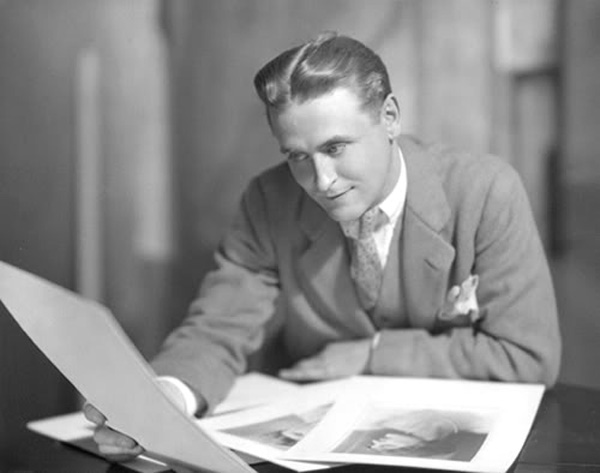
Fitzgerald

Official website of the author


My upcoming novel, Defending Jacob, tells the story of Jacob Barber, a 14-year-old boy who is accused of murdering a schoolmate. The murder weapon is this knife, a Spyderco Civilian. In the novel, the knife’s sculpted appearance shocks Jacob’s father: “The knife was sinister and beautiful, the shape of the blade, its curve and taper. It was like one of those lovely deadly things in nature, a lick of flame or the claw of an enormous cat.” That is a nice description, I suppose, but in this case a picture is worth a thousand words.
Sometimes I think a writer should make up his mind whether he’s going to be a writer or a reader. There isn’t time for both.
— Jessamyn West (via The Paris Review).
That is exactly how I feel: can’t read when I’m writing, can’t write when I’m reading.
In her room at the prow of the house
Where light breaks, and the windows are tossed with linden,
My daughter is writing a story.
I pause in the stairwell, hearing
From her shut door a commotion of typewriter-keys
Like a chain hauled over a gunwale.
Young as she is, the stuff
Of her life is a great cargo, and some of it heavy:
I wish her a lucky passage.
But now it is she who pauses,
As if to reject my thought and its easy figure.
A stillness greatens, in which
The whole house seems to be thinking,
And then she is at it again with a bunched clamor
Of strokes, and again is silent.
I remember the dazed starling
Which was trapped in that very room, two years ago;
How we stole in, lifted a sash
And retreated, not to affright it;
And how for a helpless hour, through the crack of the door,
We watched the sleek, wild, dark
And iridescent creature
Batter against the brilliance, drop like a glove
To the hard floor, or the desk-top,
And wait then, humped and bloody,
For the wits to try it again; and how our spirits
Rose when, suddenly sure,
It lifted off from a chair-back,
Beating a smooth course for the right window
And clearing the sill of the world.
It is always a matter, my darling,
Of life or death, as I had forgotten. I wish
What I wished you before, but harder.
Books are frozen voices, in the same way that musical scores are frozen music. The score is a way of transmitting the music to someone who can play it, releasing it into the air where it can once more be heard. And the black alphabet marks on the page represent words that were once spoken, if only in the writer’s head. They lie there inert until a reader comes along and transforms the letters into living sounds. The reader is the musician of the book: each reader may read the same text, just as each violinist plays the same piece, but each interpretation is different.
Burn #75 by David Nadel.
David Nadel has photographed the remains of burned-down forests in Northwest Montana for much of the past four winters. A resident of the state, he hikes up mountains and treks through trail-less terrain while lugging a large-format camera. He shoots color, though many of his images look like black-and-white etchings. His exhibition, “Burn,” is on view at Sasha Wolf Gallery in New York through March 26.
Via.
I have always wondered why people become so agitated about pirated music or movies but have no problem with lending books. Why is it “stealing” to listen to a song or watch a movie without paying but perfectly okay to borrow my books and read them without paying? We even use tax dollars — my tax dollars! — to support this scandalous book-lending via public libraries.
I understand the technical argument. Borrowing a book does not involve making an unlicensed copy of that book, the thing that copyright specifically forbids. But in the case of books, that is a distinction without a difference. One does not need to own a copy of a book to enjoy the full benefit of it; one only has to borrow it. That is because books most often are read only once then never again, at least not for several years. So possessing the book for a few days or weeks is as good as owning your own copy, unlike a song, which you will likely want to listen to over and over if you like it. Of course, this excludes the value of books as display objects — “books as furniture.” But then, the current frenzy about internet piracy is about illicit digital copies only, and you can’t very well display an MP3 file either.
I am not advocating for piracy and certainly not for closing the public libraries, only for keeping things in perspective. There has never been — and should never be — an ironclad rule of copyright that demands a payment for every single use of an artwork. It violates society’s interest in the free flow of ideas, yes, but, as Neil Gaiman points out, it is also not in the artist’s interest to have his every creation locked up out of sight behind a pay wall.
(Via)
Over the last few weeks, the manuscript for Defending Jacob has begun making the rounds and the initial response has been, well, ecstatic. Inside Random House, the editors, publicists, sales reps and all the rest have been very enthusiastic. So have buyers representing all the major sales channels: Amazon, B&N, Borders, Costco and Sam’s Club, the wholesalers who place books in supermarkets and airports. We even have our first couple of blurbs, glowing endorsements from Lisa Gardner and — brace yourself — Nicholas Sparks. Yes, that Nicholas Sparks. I am so excited to have Sparks’s endorsement. He very, very rarely blurbs, and as a “crime writer” looking to broaden my audience, I can’t imagine a better key to the Promised Land. (I don’t think I’m free to share these blurbs yet because they’re still in draft form. When I have the final text, I’ll post them here. Hell, I’ll plaster them everywhere.)
As for scheduling, the book is technically a spring 2012 title, but is currently scheduled for release in December 2011. There is still some debate about whether December is the best timing, so the publication date is likely to be pushed back a bit.
But Defending Jacob is off to a roaring start. That’s the good news.